原标题:We need WTO more than ever
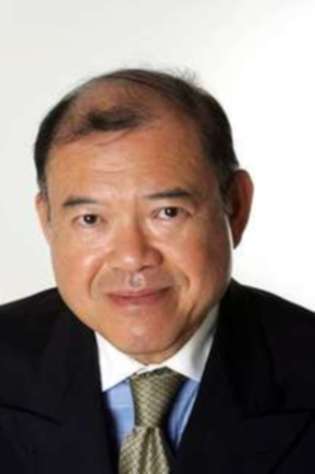
Supachai Panitchpakdi:Former Director General of the World Trade Organization, Former Deputy Prime Minister of Thailand
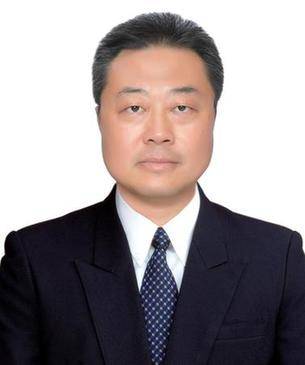
Zhigang Fu:Reporter of Guangming Daily in Bangkok
China and Asia will be the linchpin in leading trade recovery
Zhigang Fu:Dear Mr. Supachai, it is a great honor to invite you to participate in the dialogue of Guangming international forum. In March, when novel coronavirus pneumonia was most serious in Thailand, you published an article in Bangkok Business magazine titled "Novel Coronavirus Is Common Enemy of The World", which you wrote the world must fight against the pandemic together. More than half a year later, the new coronavirus is still rampant in the world. Although China and Thailand have controlled the epidemic situation, they are still facing the pressure of imported cases and epidemic rebound.
Supachai Panitchpakdi:Before the outbreak of coronavirus pandemic at the beginning of 2020, the process of multilateralism has come under threat mainly as the US adopts the policies of “America First”, isolating the world’s largest economy from collective responsibility. Walking away from the Paris Climate Change Agreement, rejecting multilateral agreements at gatherings as the G7 in Canada and G20 in Indonesia, blocking the appointment of the WTO Dispute Settlement Body’s appellate judges, and starting trade tension with China, EU and the rest of the world, the US presents the global community with the risk of re-emergence of existential crisis. The virus pandemic’s spread across the globe is part of globalisation consequences that had to suffer as we all went into the necessary lockdowns. But by engaging in lockdowns for each society’s survival we do not need to shut down our means of communication, cooperation in leaving room for living space, exchange of data on the virus and provision of PPEs and other medical equipments. At the beginning of the pandemic, US was showing positive signs of extending humanitarian support to China, while China provided assistance to countries in Asia and Europe, and offered the adept diplomatic gesture to Japan to come into Wuhan as the first country to transfer their citizens out of the infected areas. The global cooperation in a collective fight and race to find and test out new vaccines is a laudable effort to speed up the laboratory experiments. And above all, in the midst of the crisis, we should need a central body like the UN’s World Health Organisation to be as fully supported as possible in cash and kind, to enable it to perform the task of coordinating and analysing and sharing information and medical help around the world.
Zhigang Fu:Facing the COVID-19 pandemic, the Chinese and Thai people have always stood ready to help each other and fought against the pandemic together. Based on the epidemic information China provided to the WHO, Thailand established its epidemic screening mechanisms in early January. Novel coronavirus pneumonia was successfully treated in Thailand at the beginning of the epidemic. In the early days of the pandemic outbreak, Thailand successfully treated several tourists from China's Wuhan, who were diagnosed with the novel coronavirus; China and Thailand also successfully worked together in the supply of medical supplies.
Supachai Panitchpakdi:China‘s resolute tackling of the coronavirus contagion could be taken as instructive lessons for other countries. Rapid warnings plus full transparency in admitting the scale of the contagion are necessary conditions to start clamping down on infected areas. The speed with which China constructed two new hospitals in Wuhan to take up new infection cases is a demonstration of the strength of China’s public administration. Tracking and tracing applications that are applied with digital devices are also helpful in limiting and mapping virus spread. China‘s consignments of essential medicine and face masks to Thailand at the beginning of the outbreak in the kingdom have been most thankfully helpful. Cooperations in the areas of developing new vaccine against coronavirus.
Zhigang Fu:You mentioned that it is a top priority for the international community to develop vaccines against the new coronavirus. As we all know, China is speeding up the research and development of vaccines. The Chinese government has proposed that its vaccine achievements will be shared with the international community as an international public good. The Chinese government has also promised to give priority to providing Thailand with vaccines.
Supachai Panitchpakdi:As this virus pandemic is an existential threat to mankind, the vaccines, when completely tested, should be made available to cover widest areas and if possible first in the most-needed places, most preferably with the planning assistance from the World Health Organisation. The Chinese government’s generous and charitable proposal to share the vaccines with the international community is a most laudable gesture to be followed by the rest of the world.
Zhigang Fu:After the Asian financial crisis in 1997 broke out, you were appointed Deputy Prime Minister and Minister of Commerce of Thailand. Can you tell us what it was like then? How does today's COVID_19 crisis differ from the crisis at that time? The epidemic has dealt a serious blow to the world economy. In your opinion, what lessons can Asian countries provide for today's international community from their experiences in overcoming that financial crisis?
Supachai Panitchpakdi:Asia’s 1997-98 financial crisis presented a most daunting challenge to the bustling Asian economies at it hit the financial system the hardest. So recovery, not unlike the one we are facing with the present pandemic, depends on delicate balance between painstaking domestic adjustments and international efforts to keep funds and trade flowing. Asia has learnt the hard lessons of prudent management of the financialisation of its domestic economies, not to be urged forward purely by unjustified advices by the International Monetary Fund. Stand-by arrangements from the Fund are also fraught with procyclical conditionalities that help to deepen the crisis even further. China and Japan had been coming forward in supplying more funding support while China had gone further in keeping its currency stable to allow crisis-hit Asia the time to make its restructuring efforts and in purchasing agricultural import products to maintain trade lifeline to crisis-hit economies.
Zhigang Fu:The prospect of world economic recovery in the post-pandemic era has become the focus of people's attention. Countries all over the world, including Thailand, are facing severe challenges in post-pandemic economic recovery.
Supachai Panitchpakdi:As most of the experts would agree, post-COVID recovery is an uncertain process with ups and downs as new rounds of infections will disrupt a smooth upward economic trend. Global recovery would not be possible without all the major economies becoming successful in containing the pandemic. We are therefore faced with a deeper recession than the one from 2008-2009 with a prolonged period of slow and unstable growth. World trade rebound may come earlier as the 2020 contraction is going to be most severe. China and Asia will be the linchpin in leading supply-chain linked trade recovery. Since the WTO has judged the US’s tariff of 10 percent imposed in 2018 on imports from China to the amount of 200 bn US$ to be violating WTO rules, the US-China trade tension and the US’s reaction to WTO may intensify. For the world economic recovery to be sustained, international trade must be revived and WTO may need to be assigned the role of mediator in bringing the trade world back to a condition of normalcy. In the meantime, the global community may need to become really serious in finding a way to address the ongoing global disorder and to bring back some form of global governance to coordinate recovery measures and joint operations against the present and future virus pandemics.
Zhigang Fu:After the outbreak of the Asian financial crisis in 1997, China and Thailand joined hands to face the crisis and achieved remarkable results. Now in the post--pandemic economic recovery, China and Thailand can also work together to move forward.
Supachai Panitchpakdi:There are at least four areas in which China and Thailand could work together not only for the benefits of our own countries but also for the wider world. One is the area of joint work and investment in medical research and production of medical equipments. Another is our trade facilitation efforts through and expeditious operationalisation of the Regional Comprehensive Economic Partnership (RCEP). The third way is through the consistent implementation of the Belt and Road Initiative that could help to maintain multilateral corporation in enhancing economic and social connectivity and peaceful use of marine transportation routes. Fourth, China and Thailand and other UN member states should join hands in lendng strong support to multilateral orgainsations like the WHO and WTO to prevent them from being incapacitated by any major members.
China helps the WTO become more democratic, balanced, and more efficient
Zhigang Fu:From 2002 to 2005, you served as Director General of the World Trade Organization. Your work has left a deep impression on the international community. In order to promote the healthy development of the world economy and trade, you took many important measures and achieved remarkable results.
Supachai Panitchpakdi:Among several measures applied to promote linkages between trade and development, I consider my consistent contribution in the areas of strengthening developing countries’ participation in the multilateral trading system to be among the most important. To this end I adopted the policies of: a) promoting regrouping of developing countries in their joint negotiating positions as evident in the Africa Group and Group of 20 (with strong emergence during the Cancun Ministerial Conference in 2003), b) lending support to developing countries’ demand in the issues of special and differential treatment, c) taking active part in the TRIPS and Public Health’s successful negotiation by dealing with the private pharmaceutical firms at the same time and calling for the support from the UN Secretary-General Kofi Annan, d) enforcing technical assistance to enhance trade capacity building in developing economies and LDCs partly by merging training unit together with technical cooperation unit to form the Institute for Training and Technical Cooperation, and by setting a special unit to look after the LDCs, e) although the Aid for Trade programme was approved at the 6th WTO Ministerial Conference in Hong Kong just one month after I left the WTO, the preparatory initial work in creating the programme was done primarily during my watch, f) promoting stronger cooperation with the World Bank and the International Monetary Fund to be consistently engaged in trade and development framework; signing an MOU with UNCTAD for the first time with the same purpose, g) introducing into the Doha Development Agenda the issue of Cotton for the benefits of the poor cotton producing countries in Africa for them to have a stake in the negotiation process, this being an unprecedented move as normally a new issue is not allowed to be introduced into the round under negotiation, h) receiving a partial success in the Doha negotiation as the July 2004 package has for the first time an agreement to eliminate agricultural export subsidies which should help to reduce the price distortions in the world food market for the benefits of the farmers from the poorer economies.
Zhigang Fu:As Director General, you have personally experienced the process and development of China's accession to the World Trade Organization. In 2002, you wrote the book "China and the WTO: changing China and changing world trade". Now looking back, how do you evaluate the significance of China's accession to the World Trade Organization? Over the years, China has been adhering to economic globalization and opposing trade protectionism. What's your opinion on China's proposals?
Supachai Panitchpakdi:Much against the prevailing opinion at the beginning of the new millennium, i.e. China‘s accession to the WTO may demand impossible adjustments that China may not be able to cope with; the book “China and WTO: changing China and changing the world trade” rightly points out the benefits that China can gain by being part of the multilateral trading system. The book portrays the gains for China and for the world, with only mistaken underestimation of the speed with which it would become the largest trading nation of the world. We anticipate in the book that WTO would need basic reforms to make it work for every member. With China‘s accession, it can be seen that the collective role of the developing member countries has been fortified, also by the kind of supporting measures that I allude to in answer number 8. To be frank, China’s adjustments are still ongoing and still not yet completed, as is true with most members of the organisation, China’s un-relenting support of transparent, equitable, development-led, non-discriminatory globalisation would move the WTO to a more democratically balanced organisation and a more efficient and sustainable trading system. This is much needed to counter the destructive force of protectionism and deglobalisation as originating from the more advanced part of the global economy.
Zhigang Fu:The World Trade Organization has made important contributions to the development of the world economy. In recent years, some public opinions have questioned the role of the World Trade Organization. For example, we cannot take effective measures to stop the arbitrary unilateralism and protectionism some countries have demonstrated. As a result of United States obstruction, the Appellate Body of the World Trade Organization is almost paralyzed. There have even been voices in the United States advocating to withdraw from the World Trade Organization.
Supachai Panitchpakdi:This year the WTO will be celebrating its 25th anniversary looking back on a chequered history of this organisation embodying the globalisation process. Despite having to face an array of criticism, the organisation has nevertheless been reasonably successful in: a) reducing tariffs substantially across the globe, b) resolving numerous trade disputes toeing strictly the line of impartiality, c) involving trade policy review mechanism in linking trade to overall macro-economic policies, d) in paying more attention to trade and development, with special emphasis on the plights of the LDCs and introducing Aid for Trade Programme to support trade capacity building for developing countries. A post-COVID WTO would be needed more than ever as: a) more countries are turning inward to protect themselves in times of trade contraction and lockdown induced recession, b) export restrictions are used on food and pharmaceutical products, c) new discoveries of vaccines and medicines for coronavirus should be made fully available to all nations without the obstacles from TRIPs agreement, d) surges of e-commerce activities that should be uniformly regulated, especially in the areas of security, private information and anti-competition. Overall the WTO membership has been holding discussions on further reforms of the agency with the likely issues being subsidy codes, plurilateral agreements, role of state-owned organisations, special and differential treatment, efficacy of dispute settlement body, notification of trade actions and efficiency of negotiation process.
The forces for globalization will press ahead again
Zhigang Fu:The positive effects of economic globalization on world development cannot be ignored. During the pandemic, the voices against globalization have increased. Some people believe that the frequent flow of people around the world has become an important reason for the spread of the epidemic, and the distribution of global industrial chains has also impacted the anti-epidemic actions and economic development in many countries. What do you think of such doubts? Will globalization end in the post-pandemic era? Will economic and trade exchanges between countries be decoupled? Where should globalization go?
Supachai Panitchpakdi:Globalisation has already taken quite a beating before the coronavirus pandemic particularly as the US-China trade tension kept on intensifying. The US President’s rejection of multilateralism at international meetings, including his attack on multilateral institutions like the WHO and WTO (US blocking appointment of appellate body’s members), seems to have isolated the US more from multilateral settings. Nevertheless the forces of globalisation, although weakened further because of the compulsory isolation, will return to push forward as people could regain their freedom of mobility. The nets of globalisation have been woven closely together for decades through speedy improvements in the means of transportation, communication, supply chains of trade and investment that they could hardly be undone in a generation. Future world connectivity may be enhanced by further digitalisation through activities in areas like e-commerce, sharing economy, 3-D printing, and transfer of technology. In the post-epidemic era, connectedness of global activities will slacken temporarily but will be quickly revived as the world economy can move to resuscitate its global supply chains. The geopolitics of globalisation may undergo certain evolution as emerging economies led by the likes of China, India, and ASEAN may optain a stronger hold on the global power equations. For the sake of inclusive and well-balanced development-centered globalisation, these emerging market economies should be allowed full participation in global economic governance as spelt out in goal no.17 of the UN Sustainable Development Goals.
Zhigang Fu:After more than 10 years' efforts, the RCEP negotiations have finally been completed. On November 15, the RCEP agreement was officially signed at a series of leaders' meetings on East Asian cooperation, becoming the largest free trade agreement in the world.
Supachai Panitchpakdi:According to UNCTAD’s recommendations, effective regional integration effort should be open in terms of membership, development-based, with participation of countries with comparable development status. Compared with the CPTPP (Comprehensive and Progressive Trans-Pacific Partnership) whose original blueprint was mainly dictated by the US with the largest and most advanced economy, the RCEP (Regional Comprehensive Economic Partnership) with ASEAN-centered agenda appears to be more inclusive and development-oriented. As RCEP covers also the least-developed economies of the region as members, the kind of commitments may not be too far above the WTO’s normal agreements. In spite of this acceptable level of ambition it does not deserve that derogatory criticism from the US Trade Secretary as being an insignificant low-level kind of integration. In face of the deepest recession the world has to confront as a consequence of the necessary lock-downs, the expeditious operationalisation of the RCEP would provide a counterbalance in strengthening the regional supply chain.
Zhigang Fu:The United States has frequently provoked trade frictions with China. In particular, since 2018, the Trump administration has been determined to launch trade frictions in spite of China's opposition, which has seriously worsened Sino-US economic and trade relations and the world trade environment.
Supachai Panitchpakdi:Normally I would avoid the term trade war to describe the ongoing trade tension between China and the US. As I have already referred to the WTO’s verdict on the US’s initial trade restriction, the US response may not help to soften the tension. But this verdict from a creditable multilateral institution, although with less support from the US, may eventually help to bring more international pressure on the US Administration to relax its trade restrictive policies against not only China but also to Europe and other countries deemed to have sizeable surpluses against it. After all it is widely perceived that this trade tension reflects more the loss of the US trade competitiveness and its need to protect its preeminence in technological supremacy. To resuscitate the WTO’s role in dealing with spreading trade restrictions, the commitment of the whole WTO membership to start considering an acceptable framework of the organisation’s reforms that should cover the interest of all segments of the membership as soon as possible.
Zhigang Fu:Under the current domestic and international situation, the Chinese government has proposed to speed up the construction of a new development pattern where domestic circulation plays a central role and domestic and international circulation promote each other. Building a new development pattern will not only benefit China, but also bring dividends to the global economy.
Supachai Panitchpakdi:China’s commitment to boost up its domestic economy to reduce the people’s precautionary savings, reform state-owned enterprises, and raise the profile of the services sector should raise China’s domestic demand to compensate for the international trade contraction. Although the pandemic situation may at the moment not be conducive for furthering the agenda of infrastructural investments through the Belt and Road Initiative, the BRI has to be ready for supporting the forthcoming worldwide recovery. Chinese economy may soon become the largest in the world and carry a catalystic role to help move the global trade and investment forward. For instance, China is the largest trading partner of ASEAN, and also with so many countries around the world. The importance of China’s economy as a ‘global public goods’ is hard to underestimate. Therefore the ongoing economic and social reforms in China, particularly also with the urgency to deal with the equitable distribution of economic gains throughout the country, must be maintained at all costs. It is therefore a positive sign that economic contraction in China is easing up and supply side activities could be resumed, with a reasonable expectation of a robust recovery in 2021.
Zhigang Fu:You have visited China many times, and thus is a witness to China's reform and opening up.
Supachai Panitchpakdi:Having had the chance to visit China regularly since the first time in 1985, I have watched its assent to the heights of the world economy with fascination and amazement. Clearly the hard work and sacrifices of the Chinese people and governments have paid off handsomely. In the post-epidemic era, the world is showing turbulence and uncertainty and China will surely prove to be able to rise up to the challenge.游戏网
| 相关下载 |
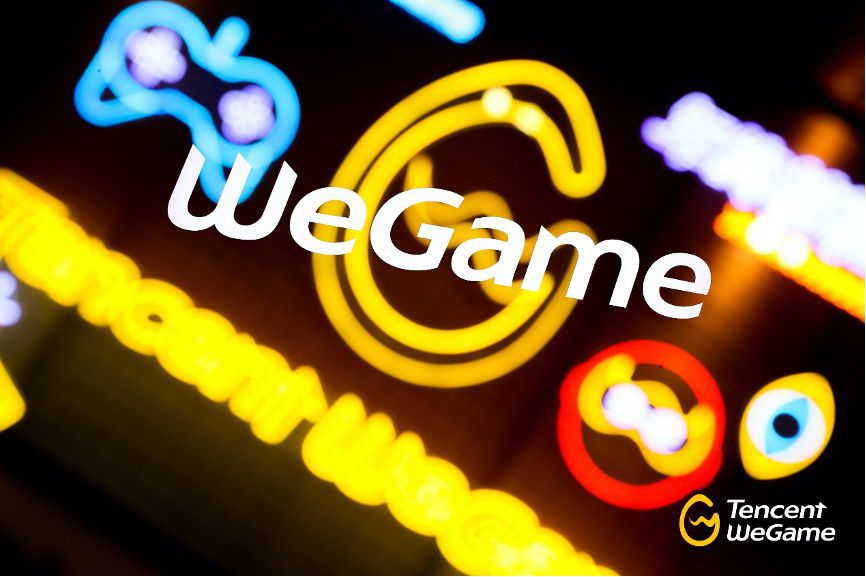
12月23日,腾讯WeGame游戏平台2020年终答谢会在上海揭开帷幕,超百名国内一线开发者、从业者共聚一堂,共同探讨游戏行业未来开发趋势和全新的合作方向。本次答谢会上,WeGame集中详情>>

JDG好汉同盟分部司理存眷了年夜舅子以及xiye 详情>>
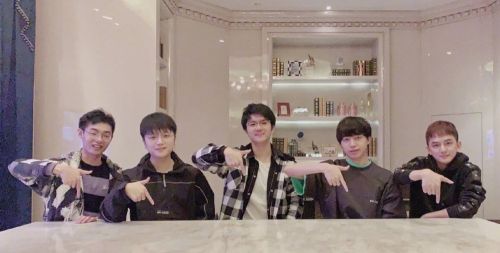
要说到最近热度最高的手游,那不得不提起英雄联盟手游了,虽然国内还未上线,但是凭借英雄联盟叱咤国内的这几年,玩家基数众多,国外上线一会就把服务器挤爆,也看得出来英雄联盟详情>>

WeGame全年最大的游戏盛会2020机友节将于11月1号开启史低促销!单机玩家专属购物节,全场年度超低折扣,本次机友节亮点:多达20多款游戏开启限时秒杀!另外平台补贴百万红包神券Q币详情>>

WeGame全年最大的游戏盛会2020机友节将于11月1号开启史低促销!单机玩家专属购物节,全场年度超低折扣,本次机友节亮点:多达20多款游戏开启限时秒杀!另外平台补贴百万红包神券Q币详情>>

在今天进行的LPL夏季赛WE和RNG的比赛中,WE在先失一局的情况下,让一追二战胜了RNG!这也是WE时隔1158天后再次战胜RNG!在今天两队这一战之前,WE已经连详情>>

微信web无法打开怎么办?微信web出现崩溃怎么办?今天小编就碰到了这个非常让人难受的问题了,那么我们怎么解决呢?下面是关于微信web无法使用的解决技巧,希望对大家有所帮助详情>>
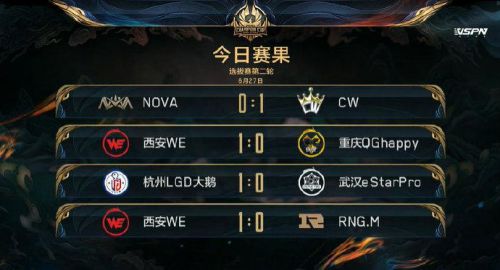
昨日6月27号,王者荣耀世冠选拔赛第二轮第三日,比赛场次非常多,这里为大家说下WE和RNGM的这场比赛,这场比赛可以说一开始WE就占了上风,WE在本次的世界冠军杯选拔赛中状态非常详情>>

腾讯Wegame宣布,《永恒之塔》将于6月10日登陆Wegame,现已开启预约。预约活动期间预约游戏可以获得预约礼包领取资格,而预创建角色之后可以领取道具奖励。 预约地址>> 公告原文详情>>

腾讯Wegame宣布,《永恒之塔》将于6月10日登陆Wegame,现已开启预约。预约活动期间预约游戏可以获得预约礼包领取资格,而预创建详情>>

Humble Bundle 每周特惠活动的本周为 Humble Weekly Bundle German Edition,顾名思义,游戏的开发者均来自德国。德国出品的游戏想来有着不错的口碑,不妨来看详情>>

Humble Bundle 本周的 Weekly Sale 是 Arcen 的独立游戏包特卖。 地址在这里:https://www.humblebundle.com/weekly 最低1刀可以获得: AI War: Fleet Com详情>>
2020KPL春季赛第七周的比赛已经进行了大半,WE和RNG.M的这场劲旅之间的较量也已经结束,最终WE战队以3-1的比分大胜对手,将总战绩定格在了7胜3负,并列详情>>
陌陌聊王者,给您带来精彩的KPL资讯! 2020年KPL常规赛已经结束了第六周的比赛,在前六周的比赛中,有一支默默无闻的战队正在逐渐的崛起,它详情>>
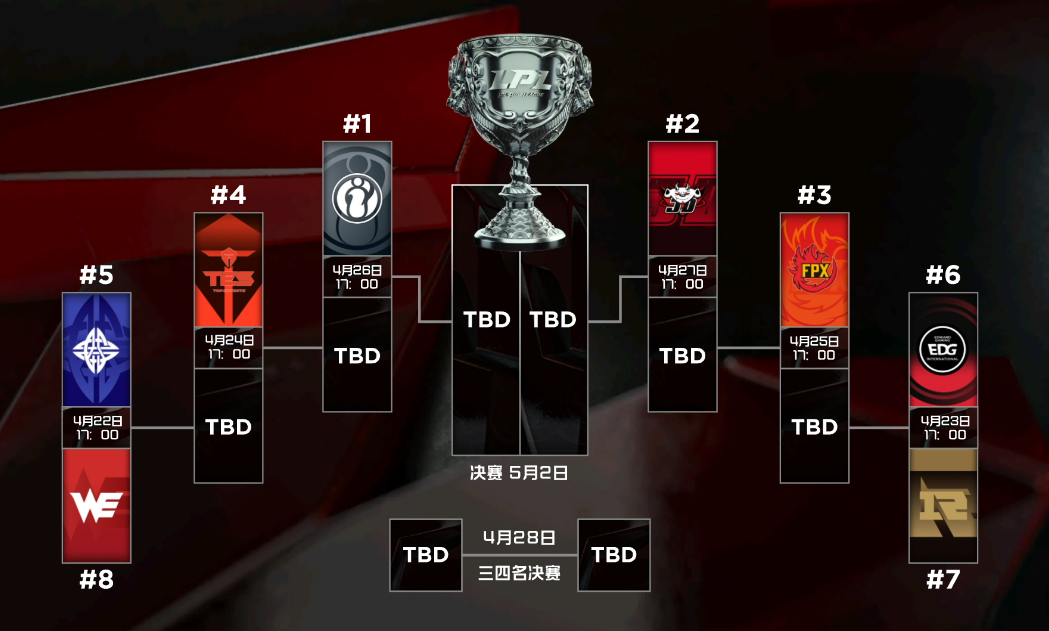
北京时间2020年4月22号-4月23号,英雄联盟LPL春季赛线上赛将在这两天分别迎来关键的季后赛首轮对决。它们分别是22号的WE对阵ES以及23详情>>
WE连胜御三家,人皇sky的反应太真实了,网友:sky的桌子可以放心了 人皇sky可以说电竞圈的一个传奇了,至今依然有很多人称他为电竞第一人。详情>>
在3月24日英雄联盟2020LPL春季季后赛六进四的首场BO5中,TES是以3:1轻取WE,成功与IG会师半决赛。纵观四场比赛,第一局前期双方有来有回,但中期TES辅助详情>>

转详情>>

在4月24日17:00,迎来了2020年英雄联盟职业联赛(LPL)春季赛季后赛的第三个比赛日,当天的比赛是WE对阵TES。TES是LPL春季赛常规赛排名第四的队伍,自从JackeyLove加入队伍详情>>
WE淘汰ES后,PDD独自黯然伤神,曾经的最大赢家这回还能站得住么 在昨天的比赛中ES是遗憾的落败了,这个曾经在春季赛初期表现极好的黑马队详情>>
春季赛的“猪狗大战”吸引着无数人的注意,不过最后还是有点遗憾,那就是厂长已经退役当教练,Uzi也在家里休养没有上场,这让“猪狗大战”少了一些味道详情>>
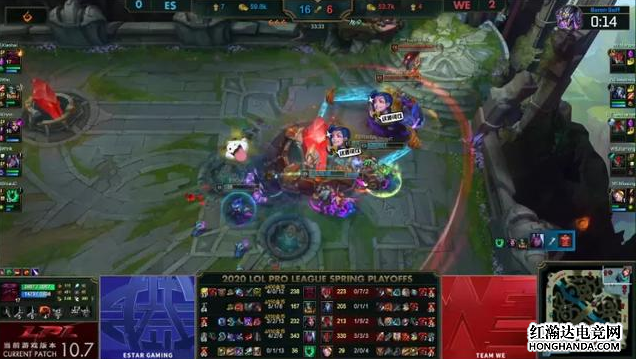
2020LPL春季赛季后赛WE对阵estar的比赛已经结束,WE这个老牌战队最终以3比1的比分战胜estar赢下比赛,而WE也成功晋级到季后赛六强。这场比赛WE的表现也让粉丝们感到非常的详情>>

Q:第三局惨遭针对,心态如何?有和打野说下局来帮自己之类的吗? Morgan:第三局的话因为自己失误也多,然后对面就比较针对我,但是我们的队员都是在鼓励我,我本来是想这一局详情>>

在今天进行的2020LPL春季赛季后赛中,WE战队3:1击败ES取得胜利。同时,这也是WE时隔913天迎来的又一场bo5胜利。WE上一次获得bo5的胜利还要追溯到20详情>>
2020LPL春季赛已经到了季后赛阶段,这次进入季后赛的队伍可以说是目前LPL最强的八支战队,而且实力也都比较接近。Estar是今年新加入LPL的一支新军,幕详情>>
在刚刚结束的英雄联盟LPL春季赛季后赛WE对阵estar的比赛中,WE以3比1的比分战胜estar赢下比赛,此战过后WE也成功晋级到季后赛六强,将在下一轮的比赛详情>>
北京时间4月22日下午17:00,LPL春季赛季后赛大幕拉开,揭幕战为“星光之力”ES对阵“梦想少年”WE。虽然ES在前期分别获得了不同程度的领先,但WE在中期详情>>

转详情>>

Q:Morgan:今天两把鳄鱼发挥非常出色,评价一下自己今天的表现吧。 A:Morgan:第二把选的鳄鱼,打出来的效果很好,第三把队友让我继续选鳄鱼,然后也帮我,所以打的也挺详情>>
昨天LPL春季赛第二场的比赛是由WE对阵OMG战队。在常规赛最后一天的比赛,OMG和WE的比赛结果,将会决定最后一张季后赛门票的归属。从先前的比赛状态详情>>

OM详情>>
前言:哈喽大家好,我是风光君!备受LPL玩家关注的S10春季赛已经接近尾声,截止目前已经有七支队伍确定晋级季后赛,分别是IG,FPX,ES,JDG,EDG,TES以及RNG。 详情>>
LPL春季赛已经迎来了常规赛的最后一个比赛日,而今天的第二场比赛WE对阵OMG,将决定最后一张季后赛门票的归属,这两支战队谁赢谁进季后赛。第一局比赛详情>>
WE 2-1 EDG之后,对季后赛局势产生了以下影响: 1、WE明天将与OMG展开生死战,争夺最后一个季后赛名额 2、VG确定无缘季后赛 3、EDG常规赛排名确定为第六,将与详情>>
在刚刚结束的英雄联盟LPL春季赛常规赛WE对阵EDG的比赛中,WE以2比1的比分战胜EDG赢下比赛,此战过后WE本次春季赛的战绩也来到了7-8,依旧保留着晋级季详情>>
4月19日!EDG和WE的对决已经是来到了决胜局,前两局双方打成1:1平。完全换血的WE,面对比较老练的EDG表现的还是比较不错,前两局打的都挺不错的。不多说详情>>
在昨天晚上WE对阵LNG的比赛中,WE不幸1:2负于LNG,让自己的季后赛名额之路又增坎坷。我们都知道如今已经确定了7个季后赛名额,而还有最后一个名额,却是详情>>
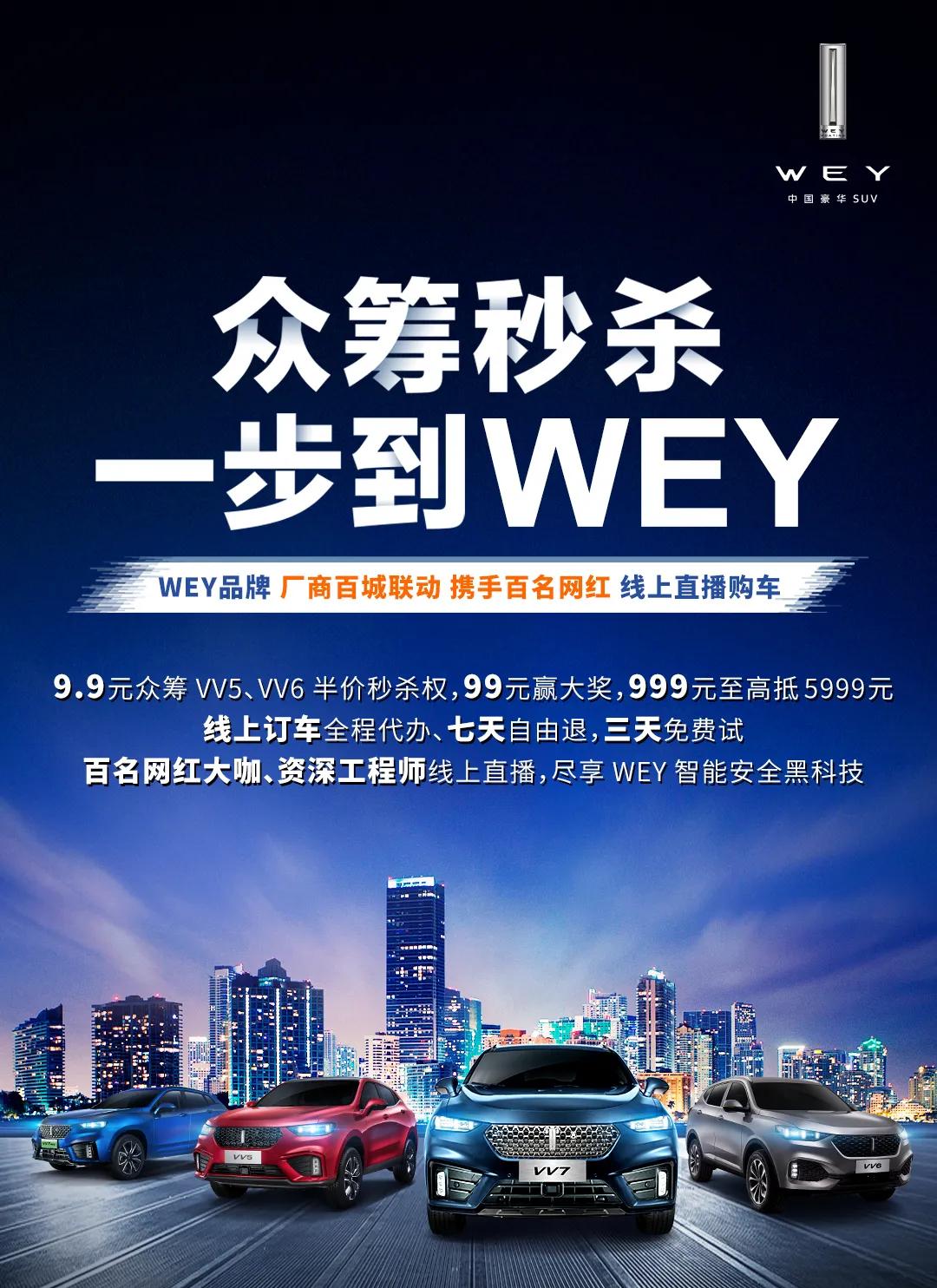
作者:陈曦 新冠肺炎疫情对汽车市场的短期影响已经显现。据乘联会相关数据显示,在疫情最严峻的二月份,因线下销售活动受阻,全国乘用车销量同比下滑可能超过80%,整个详情>>

以上就是小编给大家带来的《2018 we vs sng 赛事回顾:来一波回忆杀!》内容了,更多好看好玩的游戏资讯,请关注234游戏网,感谢您的支持。 详情>>